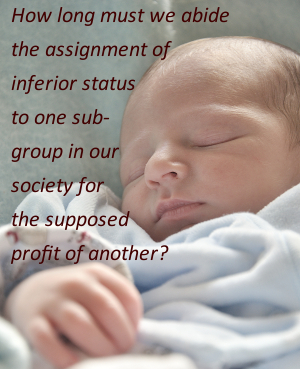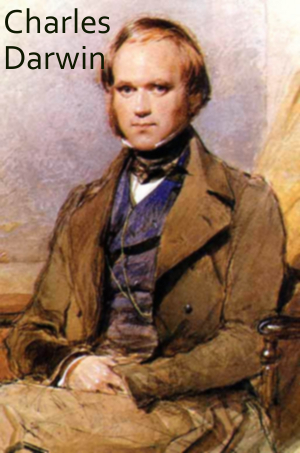Shot Avoidance- Helpful Video for Pastors
Body
Helpful instruction on a simple technique for dealing with an armed threat
As iron sharpens iron,
one person sharpens another. (Proverbs 27:17)
Helpful instruction on a simple technique for dealing with an armed threat
Nancy Wilson on tatoos and body piercings
Jeff Straub begins a review of Peter Masters’ Worship In The Melting Pot

On January 20 of this year, Barack Obama was sworn in as the 44th President of the United States of America. This momentous occasion did not mark the death of racism in our land. It did, however, betoken a crucial stage in the sluggish uprooting of racism’s influence upon this nation. It is no small matter that the majority of voting Americans in the election resolved to appoint an African-American to the highest office in the land—arguably to the most powerful governmental post on the planet. This marks a groundbreaking advance toward an America in which one’s abilities and opportunities are wholly disentangled from levels of melanin in one’s skin—toward an America in which citizens of every class and ethnicity share equal status as creatures made in the image of God.
Just days before Obama’s November 4 victory at the polls, I made a rather timely visit to two museums. Each of these museums preserves on display the viewpoint of onetime purveyors of a societal vision that hinged on the perceived inferiority of a specific class of people. The Gettysburg Museum in Pennsylvania and the Holocaust Museum in Washington D.C. each immortalizes the convictions of sincere intellectuals who sought to elevate one segment of society by oppressing another.
Alexander H. Stevens, Vice President of the Confederate States of America, declared that the “cornerstone” of the Confederacy “rests upon the great truth that the Negro is not equal to the white man; that slavery, subordination to the superior race, is his natural and moral condition.” In the hallowed halls of the U.S. Senate on March 4, 1858, Senator James Henry Hammond of South Carolina proclaimed: “Our slaves are black, of another and inferior race.”
Countering such sentiments, Abraham Lincoln declared in a debate at Galesburg, Illinois (October 7, 1858): “I confess myself as belonging to that class in the country who contemplate slavery as a moral, social and political evil …” In a letter to Albert Hodges, Lincoln wrote: “If slavery is not wrong, nothing is wrong.”
Consider this carefully: These two radically distinct ideologies were vehemently defended and publicly debated by sincere Americans. Mercifully, the viewpoint that eventually prevailed insisted that oppressing one class of people to protect the status of another was not only evil, but degrading to the protected class—a thesis Booker T. Washington ably championed in his autobiography, Up from Slavery. The presidency of Barak Obama rides on the wings of this achievement.
Details at Associated Baptist Press
Editor’s Note: This article is reprinted with permission from Doug Kutilek’s free newsletter “As I See It,” a monthly electronic magazine, and appears here with some editing. AISI is sent free to all who request it by writing to the editor at [email protected].

Lastly, I could show fight [vigorously advocate] on natural selection having done and doing more for the progress of civilisation than you seem inclined to admit. Remember what risk the nations of Europe ran, not so many centuries ago, of being overwhelmed by the Turks, and how ridiculous such an idea now is! The more civilized so-called Caucasian races have beaten the Turkish hollow in the struggle for existence. Looking to the world at no very distant date, what an endless number of the lower races will have been eliminated by the higher civilised races throughout the world.
—Charles Darwin (Darwin, Francis. The Life of Charles Darwin. 1902. Ed. John Murray. London: Senate, 1995., p. 64).
The volume from which this quotation is taken is essentially an abridgment by the author (one of Darwin’s sons) of his own longer 2-volume work (which contained considerable autobiographical material by Charles Darwin). It is not a hostile, fault-finding attack on Darwin, or a “Mommy Dearest” exposé by an alienated child, but a strongly pro-Darwin account. Its casual revealing of Darwin’s inner thoughts and attitudes regarding the races of mankind is therefore most telling.
“Natural selection”—the death and genetic elimination and extermination of “inferior” individuals and races in the mad scramble for survival—is viewed by Darwin, the founder and proponent of this view, as a great good, not merely among fishes and ferns and ferrets, but among people. Naturally, and arrogantly, assuming the superiority of his own “Caucasian” race (and of course himself, especially), he views with mirth the absurdity of the fear the white Europeans had in the 15th century of being overwhelmed by the Muslim Turks, which he viewed as a decidedly inferior race of people. And notice, it was not merely white hegemony that Darwin gloried in, but victory in “the struggle for existence” (emphasis added).
Interesting observations on marriage and parenting from Julia Duin of the Washington Times
Newsweek looks at the latest evidence of societal decline

Stephen Jones issued the following letter-
Discussion